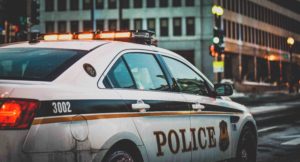
Interactions with police can be scary for the general public, even when the encounter is a simple routine traffic stop. When these interactions are caught on video, this footage can serve as important evidence for the accused when they are fighting criminal charges. Many people, however, question whether using their phones to record law enforcement during an interaction is even allowed under the law.
In general, it is perfectly legal to film police officers during an interaction. Because the United States Constitution has been interpreted over and over as protecting the right to take photographs and video in public, as being able to do so is a critical check on government power. That being said, there are certain circumstances that are the exception to this general rule that you should know. Some overzealous officers may overreact when being filmed while performing their duties in public, which can lead to all sorts of civil rights violations including unlawful detainments, harassment, and even excessive use of force.
Photographing and Videotaping the Police
It is important to know that as long as certain factors are met, you are typically well within your rights (and the law) to take photographs of law enforcement. These factors include:
- Being located in a public space;
- Being in that space lawfully;
- Not directly interfering with the police.
If the event is happening on public property, then it is up to that property owner or manager to allow–or not allow–you to remain present on the premises. You are generally ok to remain and photograph if you are on your own property.
Video recording law enforcement is also usually allowed under the law. One crucial exception, however, is the actual recording of sound. This is because, under Nevada’s wiretapping laws, there must be consent of at least one party to a conversation in order for it to be lawfully recorded. Therefore, if you are located on private property, you will need consent from someone who is engaging in private conversation. This requirement is waived, however, in circumstances in which the communication is considered public. When a person is being arrested or detained in a public place by law enforcement, this is not considered a private conversation. Consequently, when police are performing their public and official duties in a public setting, you are generally allowed to record the incident.
What to Do if Confronted by Police
If a law enforcement officer confronts you or demands that you stop photographing or recording them in their official duties, do not get aggressive. Instead, politely and respectfully respond by stating that you have a right to record public officials performing their duties. If the officer persists or makes you feel like you will be detained, then you should ask “Am I free to leave?” Doing so will force the officer to decide whether to arrest you or not. Keep in mind that in order to be detained by law enforcement, they must have a reasonable suspicion that you have committed a crime. Many unlawful arrests occur on a daily basis because officers do not stay within the limits of their power.




